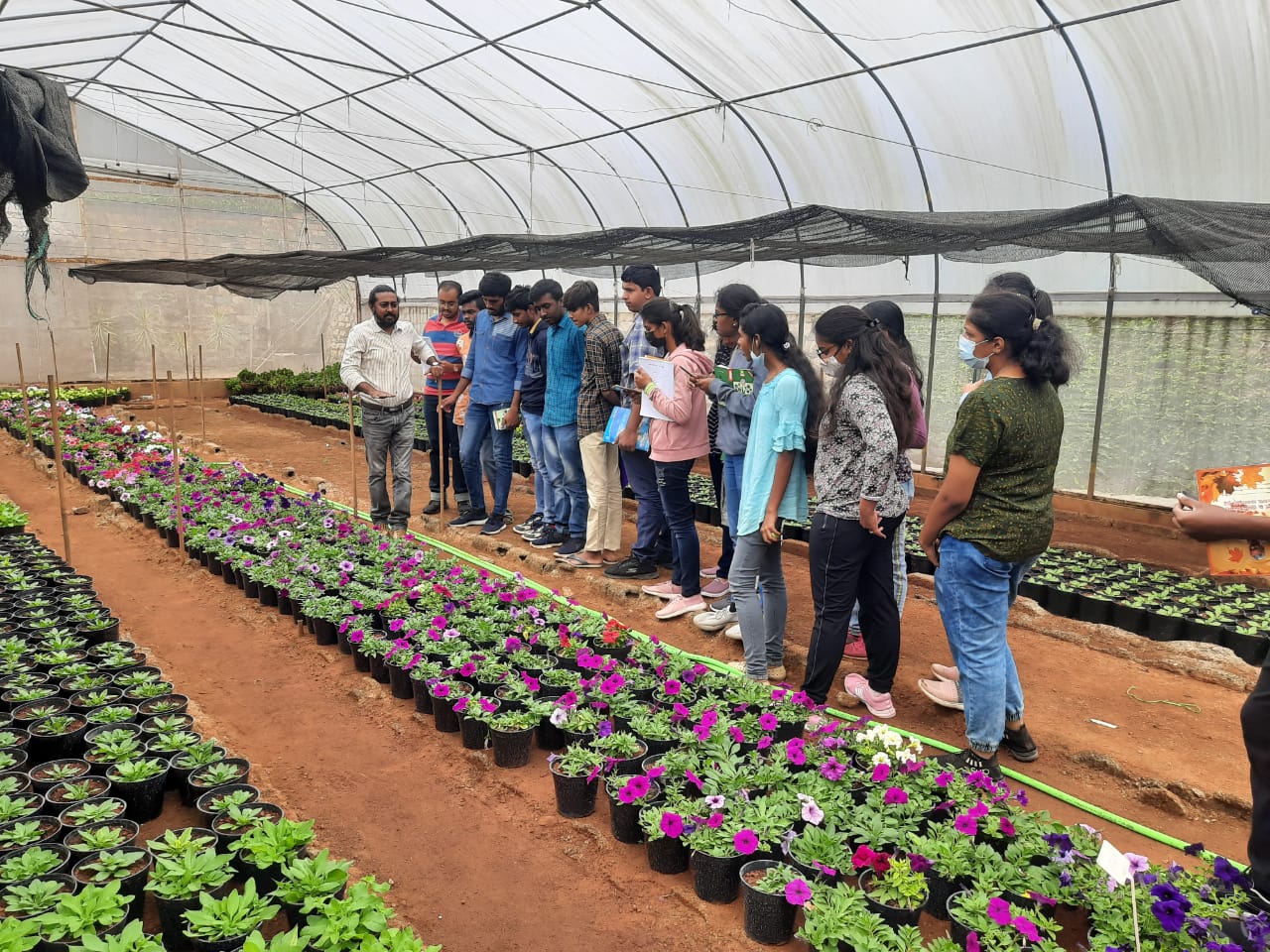Postgraduate Diploma in Agriculture in India: Advancing Agricultural Education and Practices
Introduction:
Postgraduate education plays a vital role in equipping individuals with specialized knowledge and skills in their chosen fields. In India, the agricultural sector is of paramount importance, and the pursuit of a postgraduate diploma in agriculture offers numerous opportunities for professionals to enhance their expertise. This article explores the significance of postgraduate diplomas in agriculture in India, covering various aspects such as curriculum, institutions offering the program, career prospects, and the impact of these diplomas on the country's agricultural landscape.
Overview of Postgraduate Diploma in Agriculture Programs:
Postgraduate diploma in agriculture programs in agriculture in India is designed to provide advanced knowledge and training to individuals who already possess a bachelor's degree in agriculture or a related discipline. PG diploma in agriculture programs typically focus on specialized areas of agricultural science, management, and technology, enabling students to delve deeper into their chosen fields of interest.
The specific curriculum and focus areas of a postgraduate diploma in agriculture may vary depending on the institution offering the program. However, some common topics that are often covered include:
1. Crop production and management: In, PG diploma in agriculture this course includes studying different types of crops, cultivation techniques, soil management, pest and disease control, and agricultural practices to maximize crop yields.
2. Livestock production and management: In, PG diploma in agriculture this course involves learning about animal husbandry, livestock nutrition, breeding and genetics, health and disease management, and the management of dairy, poultry, or other livestock enterprises.
3. Agribusiness and farm management: In, PG diploma in agriculture this course focuses on the business aspects of agriculture, including farm planning, financial management, marketing strategies, supply chain management, and agricultural policy.
4. Agricultural economics: In, PG diploma in agriculture this course area explores economic principles and their application to agriculture, including topics such as agricultural markets, pricing, agricultural trade, and policy analysis.
5. Agricultural technology and innovation: In, PG diploma in agriculture this course covers the latest advancements in agricultural technology, precision agriculture, the use of drones and remote sensing, agricultural machinery and equipment, and the integration of technology in modern farming practices.
6. Sustainable agriculture and resource management: In, PG diploma in agriculture this course emphasizes sustainable farming practices, conservation of natural resources, environmental impact assessment, and strategies for promoting sustainable agriculture and responsible land use.
7. Research methodologies: Students may also learn about research methods and techniques relevant to agricultural studies, including experimental design, data analysis, and interpretation of research findings.
India offers several postgraduate diploma courses in agriculture that cater to individuals seeking specialized knowledge and skills in various areas of agricultural science. Here are some popular postgraduate diploma courses in agriculture offered in India:
1. PG Diploma in Agricultural Management: This program focuses on agricultural business management, including subjects such as agribusiness management, rural marketing, agricultural finance, supply chain management, and agricultural policy.
2. PG Diploma in Horticulture: This course emphasizes the study of horticultural science, landscape design, plant propagation, nursery management, post-harvest technology, and sustainable horticultural practices.
3. PG Diploma in Plant Protection: This program in PG diploma in agriculture is designed to equip students with knowledge and skills in plant pathology, entomology, nematology, and integrated pest management strategies to protect crops from diseases, pests weeds.
4. PG Diploma in Agri-Biotechnology: This course focuses on the application of biotechnology in agriculture, including genetic engineering, crop improvement techniques, tissue culture, bioinformatics, and molecular breeding.
5. PG Diploma in Organic Farming: This program provides specialized knowledge in organic farming practices, organic certification processes, sustainable agriculture, organic pest management, and organic crop production techniques.
6. PG Diploma in Agricultural Extension: This course focuses on agricultural extension services, rural development, farmer education, agricultural communication, and community-based agricultural programs.
7. PG Diploma in Agribusiness: This program covers various aspects of agribusiness, including marketing, finance, risk management, entrepreneurship, and value chain management in the agricultural sector.
8. PG Diploma in Seed Science and Technology: This course focuses on the science and technology of seed production, seed quality control, seed testing, seed storage, and seed business management.
9. PG Diploma in Agricultural Engineering: This course focuses on the application of engineering principles in agriculture, including farm machinery, irrigation systems, post-harvest technology, farm structures.
Institutions Offering Postgraduate Diploma in Agriculture Programs:
Several renowned institutions across India offer PG diploma in agriculture. Prominent examples include the Indian Agricultural Research Institute (IARI) in New Delhi, Tamil Nadu Agricultural University (TNAU) in Coimbatore, Punjab Agricultural University (PAU) in Ludhiana, Acharya N.G. Ranga Agricultural University (ANGRAU) in Hyderabad, GPS Institute of Agricultural Management in Bengaluru, etc. These institutions boast experienced faculty members, state-of-the-art facilities, and research opportunities, providing students with a conducive learning
Career Prospects and Impact of PG diploma in agriculture:
Obtaining a postgraduate diploma in agriculture opens up a multitude of career prospects in India's agricultural sector. Graduates can pursue opportunities in government departments, research organizations, agribusiness companies, non-governmental organizations (NGOs), and international agricultural development agencies. The diploma equips individuals with specialized knowledge and skills, enhancing their employability and allowing them to contribute to agricultural development, policy formulation, research, and technology transfer.
Moreover, postgraduate diploma in agriculture play a significant role in advancing agricultural practices in India. Graduates, armed with updated knowledge, can implement sustainable farming techniques, optimize crop production, manage livestock efficiently, and promote responsible land use. By integrating scientific research and innovative technologies, these professionals contribute to increasing agricultural productivity, mitigating environmental impact, and ensuring food security for the nation.
In conclusion, postgraduate diploma in agriculture in India provide a specialized avenue for individuals seeking to enhance their knowledge and skills in this crucial field. The diploma holders play a significant role in advancing agricultural practices, promoting sustainability, and driving innovation in India's agricultural sector. With the ever-increasing demand for food production and the need for sustainable agricultural practices, the pursuit of a postgraduate diploma in agriculture proves to be a promising path for professionals looking to make a positive impact on India's agricultural landscape.

